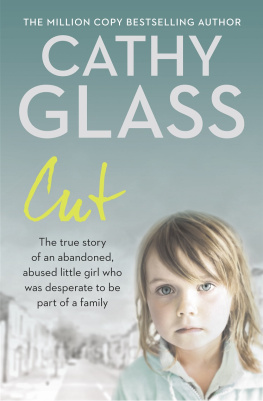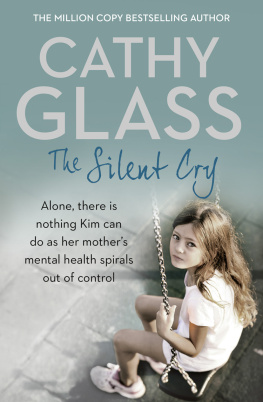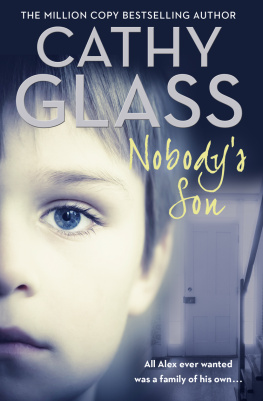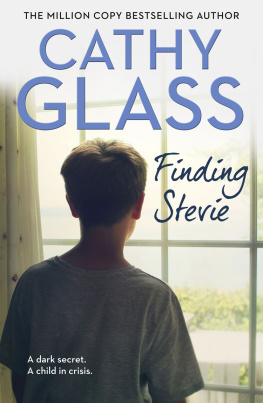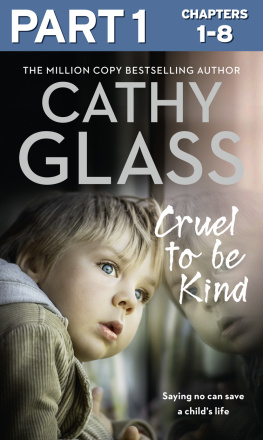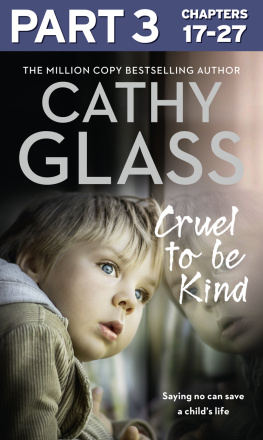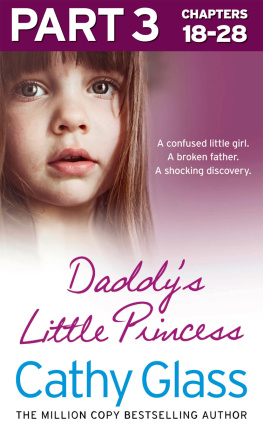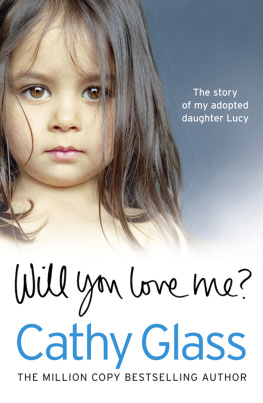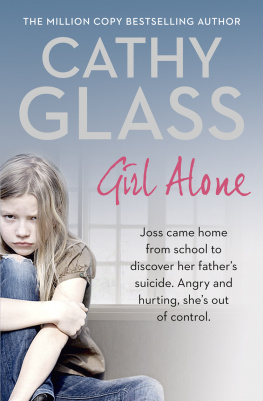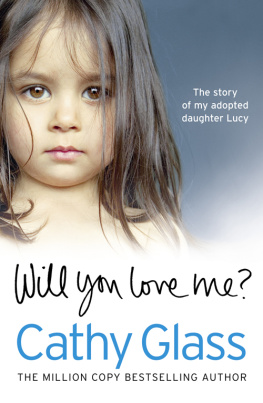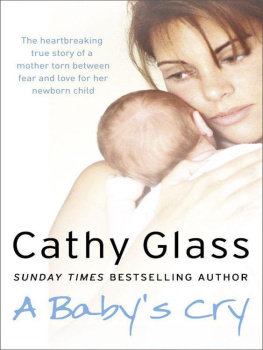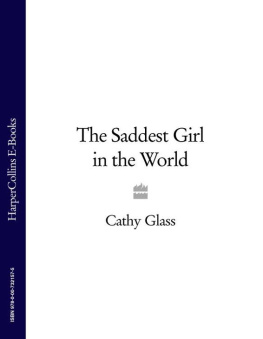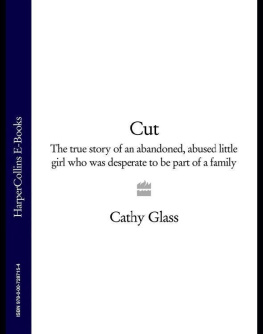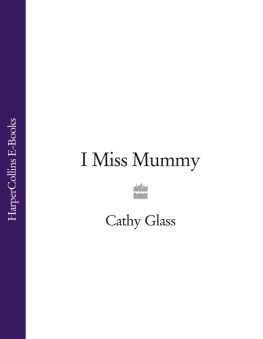T o my family with love
W hen interviewed, I am often asked when and why I began fostering, all those years ago. This is the story of when and why; it is also the true story of Dawn. Dawn was the second child I fostered and nearly became the last. It is set at a time before the Childrens Acts, when there was no training for foster carers, no record keeping, no meetings, no background information on the child, little accountability and no support. Dump em and run seemed to be the philosophy of the social services at the time, and the more disturbed the child was, the faster and quicker the social services ran. Because of all the changes in fostering and social work practice, this story shouldnt happen now, although I fear there is a foster carer somewhere who can prove differently.
Certain details, including names, places and dates have been changed to protect the child.
J ohn, my husband, and I were trying to start a family, but it was proving difficult. We were doing all the right things (and often) but the longed-for baby hadnt arrived. One Saturday evening I was flicking through the local newspaper and saw an advertisement: Could you offer a child a home? Mary desperately needs one. There was an accompanying black-and-white photograph of a darling little girl, aged six months, reaching out with her arms and eyes to anyone who would look, together with the telephone number of the duty social worker.
I glanced up at John, who was sitting on the lounge floor trying to repair his electric drill. Lots of little metal bits were strewn across a sheet of old newspaper. Our first home together had been a DIY project, although now that we had been living in it since our marriage, two years previously, the worst was over. Most of the rooms were not only habitable but decorated, and although sparsely furnished, comfortable. I looked again at the social services advertisement, and to the small print under the main heading: Little Mary requires a foster home while her mother recovers in hospital.
John? I said tentatively.
Mmm? He glanced up, with the metal casing of the drill in one hand and a screwdriver in the other.
What do you think about this? I left the sofa and, careful not to tread on the assortment of drill parts, showed him the open page.
He read the advertisement and looked at me seriously. Youd never be able to give her back, would you?
I paused for a moment, deep in thought. I guess you have to go into fostering aware that you are going to give the child back to the mother. What do you think? Is it worth a phone call to find out more?
What about your job? he asked.
I suppose Id have to hand in my notice. I was going to give up work anyway when we had a baby.
Its not the same as having our own family, is it? He was still looking at me, concerned. John could always be relied upon to view a situation objectively, seeing the pitfalls and problems when I had possibly rushed in.
No, it would be as well as having our own family, I said.
He looked down at the drill. Im not sure about fostering. >Let me think about it. And if I was honest I wasnt sure either.
Could I look after a child that wasnt my own? Feed and change her, bond with her, knowing that at some point she would be returning to her mother? It was a huge emotional undertaking and a life-changing commitment, added to which, we needed the money from my job. Every penny counted, not only because of the cost of the house, but also as a nest egg for the day we did have a baby and I had to give up work. I closed the newspaper and dropped it into the magazine rack. Coffee? I asked John.
Yes please. And a doughnut if theres one left.
It was John who raised the subject of fostering again, later that night as we climbed into bed, having obviously given the matter more thought. You know, I had an aunt who fostered, he said. She looked after two boys. I dont know all the details. She lived in Scotland and we didnt really see that much of them, but they seemed happy enough.
Really? I asked, intrigued, resting my head on the pillow.
I suppose you could just phone, and find out more, he said. They must have lots of enquiries that are never followed up.
If I have a chance Ill phone on Monday during my lunch hour, I said. I worked for the civil service and the office manager didnt mind the staff making the occasional phone call as long as it wasnt overseas.
And in the meantime, how about we have another attempt at starting our family, John said with a smile. You know what they say practice makes perfect.
I laughed, and snuggling down into the bed felt Johns strong warm arms encircle me and his lips lightly on mine.
I phoned the social services on Monday; it was an answer machine. I left my name and home telephone number, and said that I had seen their advertisement about fostering Mary and would like some more information. There was no dedicated line to the Children and Families team at that time. Now, if you phone to enquire about fostering, a social worker from the Children and Families team, with experience of looked after children, as theyre called, will speak to you and tell you what you want to know. Well, thats the theory at least, although even now some councils are more efficient than others at recruiting foster carers. My message then would be picked up by the duty social worker with no knowledge of fostering who dealt with all messages coming into the social services offices, on all subjects.
My call wasnt returned for a month, by which time I had forgotten about fostering, or almost. A social worker phoned at 5.30 p.m. when I had just returned home from work. There was no apology for the delay in getting back to me. After she had given me her name she asked if we had ever fostered before, and I guessed my no was the wrong answer. Oh, she said clearly uncertain what to do next. All my questions were met with Im sorry, I really dont know. So when we said goodbye, five minutes later, I was none the wiser about fostering. However, she did say she thought there might be a leaflet somewhere, and that she would try to find it and send it to me, for which purpose I gave her our address.
Another week passed before the leaflet arrived a single photocopied A4 sheet, showing pictures of smiling children with some general remarks that foster homes were needed for children who couldnt be looked after by their natural parents, but with no details about what was actually involved. On the reverse of the leaflet was a date (in ten days time), together with a venue where an introductory evening was to be held. I assumed this was an introduction to fostering, although it could have been about pig farming for all the information there was. Id asked the social worker a number of specific questions, and the leaflet said nothing other than there were children of all ages who needed foster homes.
I left the leaflet with the other non-urgent mail on the shelf in the kitchen and thought no more about it. John and I were both busy with work and finishing the house. It wasnt until the day before the introductory meeting was scheduled that John raised the subject over dinner.
Are you going to that meeting? he asked as we ate. About fostering, he added as I looked at him, non-plussed. Its tomorrow.
I hadnt planned to. We were going to finish the tiling in the bathroom tomorrow evening.
I can do the tiling, if you want to go, John said. Or we could go together, and do the tiling on Saturday. Im not playing golf.
My enthusiasm for fostering had lapsed with the passing of time and the less than dynamic attitude of the social worker. Do you want to go? I asked.
He nodded. May as well. Hear what they have to say. Otherwise well always wonder what we were missing.
OK, I said. Fine.
There were eleven of us in a church hall five couples and a widow. The meeting was led by two social workers who spent half an hour explaining to us the reasons children came into care; the current policy that believed such children were better looked after in foster families than childrens homes; and that all foster carers had to be interviewed. An experienced foster carer then talked to us for twenty minutes, giving us a down-to-earth, experienced-based account of her fostering, which was very interesting. We broke for coffee and had a chance to chat to the other couples present, all of whom, like John and me, had never previously fostered and had come to the meeting to learn more. After coffee the foster carer who had spoken to us before the break was available to answer our questions. Her candid responses and the little details of family life in her fostering family were riveting and also invaluable in helping us reach a decision on whether to proceed. By the time we came out, an hour later, I was enthusiastic again, and so was John. The descriptions we had heard of the childrens sad lives and the reward of being in a position to help a little had won us over.
Next page
